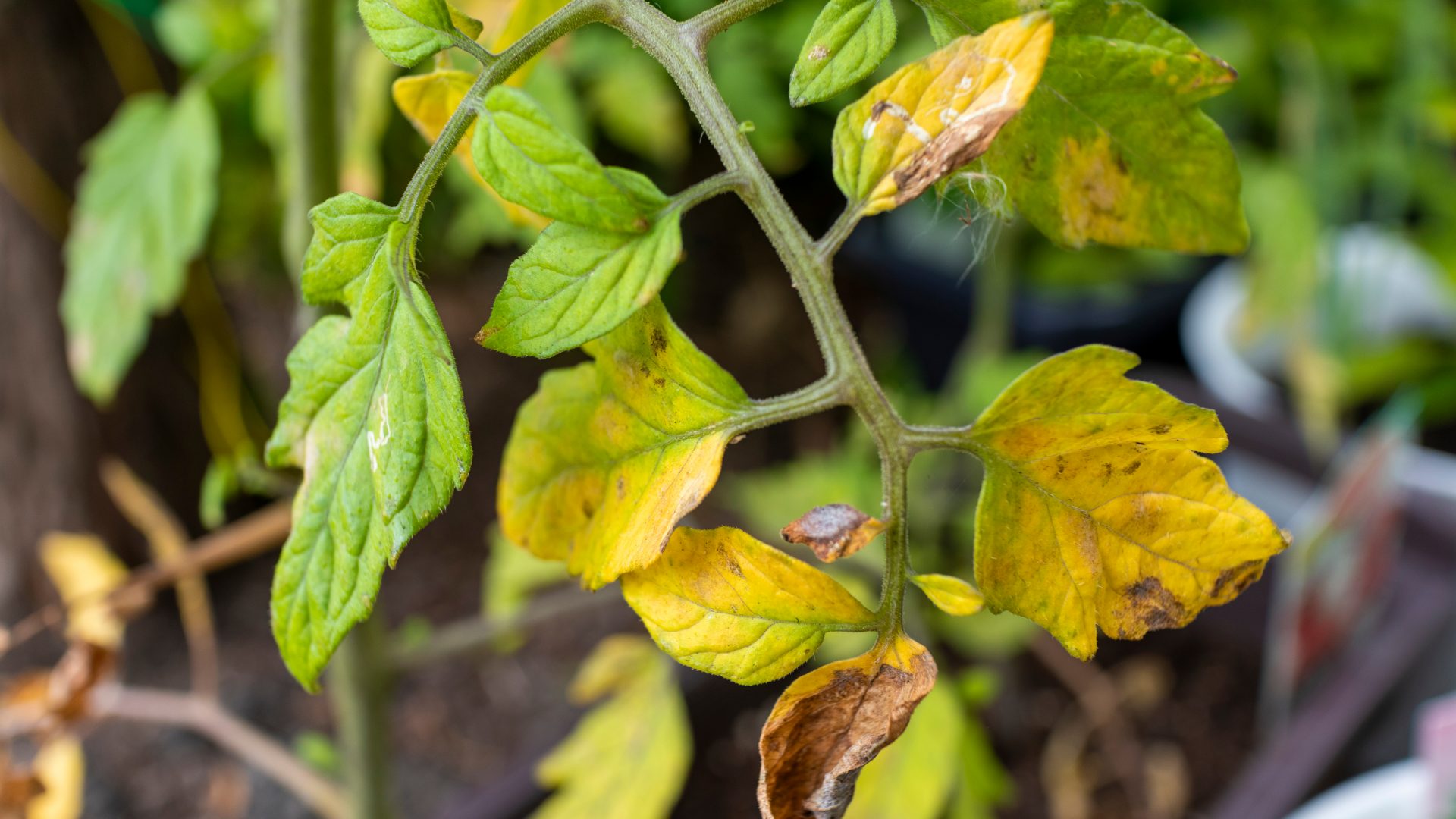The horticulture sector is firmly in the grip of emerging viral diseases caused by TYLCV, ToLCNDV and ToBRFV. Both in the EU and abroad, growers and stakeholders are battling this new threat to the plant health of tomatoes and cucurbits. In our 6-part blog series, we shine a light on the situation in VIRTIGATION’s focus countries, and what is being done to address it. Our first instalment covers Belgium, the home country of our project coordinator KU Leuven.
ToBRFV as main problem in Belgium
In Belgium, the region of Flanders is home to almost all of the country’s tomato production. Only few small-scale tomato growers are based in Belgium’s other big region, the French-speaking Wallonia region. Subsequently, Flanders and its high-tech tomato greenhouses have been most affected by viral outbreaks. Tomato brown rugose fruit virus (ToBRFV) constitutes the main problem for the sector in Belgium. The first ToBRFV infection in Belgium was reported in December 2020 in a tomato greenhouse in Flanders. Since then, cases in 12 tomato companies have been reported across Flanders, including in commercial greenhouses in the areas of Antwerpen, Mechelen and Turnhout.
According to the European and Mediterranean Plant Protection Organization (EPPO) and Belgian plant protection services, ToBRFV is currently present in the country, with few occurrences. As concerns the tomato leaf curl New Delhi virus (ToLCNDV) and tomato yellow leaf curl virus (TYLCV), these are currently not causing major problems in Belgium. Moreover, only tomatoes are affected by ToBRFV in Belgium, while cucurbits are not concerned.

Serious threat to tomato cultivation
As a quarantine pest, ToBRFV poses a serious threat to the Flemish tomato cultivation in Belgium. There is currently no cure for the virus. Infected tomato plants often produce fruits with poor colouring or brown stains and are thus unsellable. Furthermore, ToBRFV as seed-borne tobamovirus spreads very fast via mechanical transmission (e.g. injuries on plants). Thus, it is crucial to act drastically and fast to combat ToBRFV.
At the moment, the only way to combat ToBRFV is prevention. Very strict hygenie measures are in force for infected tomato companies in Belgium, such as greenhouse quarantine and destruction of affected plant material. Government authorities need to also approve the hygenie protocol before a grower can continue tomato production. Even many growers without a ToBRFV infection in their company follow some of these strict hygenie measures to prevent ToBRFV infection. In spite of the Flemish tomato sector implementing careful, preventive hygenie measures, ToBRFV spread is still not under control. Additionally, the sector still knows little about the biology and epidemiology of ToBRFV in Belgium. This makes it difficult to eradicate the emerging viral diseases that ToBRFV causes in the country’s tomato sector.
VIRTIGATION partners at the forefront in tackling ToBRFV
To limit the impact of ToBRFV on Flemish tomato cultivation, more research is needed to develop effective solutions against this quarantine pest. This is where VIRTIGATION’s Belgian partners KU Leuven (university), DCM CORP, EMWEB (both companies), Proefcentrum Hoogstraten – PCH and Scientia Terrae (both research centers) are at the forefront of countering the threat posed by ToBRFV in Belgium. Especially PCH, Scientia Terrae and DCM CORP have been very active in supporting the Flemish tomato sector in the fight against ToBRFV. DCM is helping growers with practical tools to use in case of ToBRFV, while Scientia Terrae’s advanced diagnostic capabilities are supporting in rapidly identifying potential infections.
PCH is the National Knowledge Broker (NKB) for Belgium in VIRTIGATION multi-actor-approach. The research center created a standard hygenie protocol that growers with a ToBRFV infection can adapt according to the specific situation in their company. PCH also guides growers in applying this protocol and in communicating with Government authorities. They also support in finding practical solutions. This includes e.g. how to treat/dispose different substrates, and how to treat tomato plants at the end of the growing cycle. In addition to this, PCH performed a trial with different tomato varieties at two infected tomato companies. The information resulting from the trial serves to help growers recognize ToBRFV symptoms and to decide on which variety to plant next year. PCH is also organizing bi-weekly meetings with relevant stakeholders to stay up-to-date on the ToBRFV status. It further disseminates new knowledge to growers by webinars, info sessions and articles.

New EIP-AGRI operational group launched
Alongside VIRTIGATION’s efforts in countering the ToBRFV threat, key stakeholders in Belgium have recently launched a new EU EIP-AGRI ecosystem operational group called “PraKeTo”. PraKeTo stands for practical guidance and knowledge building on ToBRFV in Dutch. It is running from September 2021 – October 2022 with the involvement of VIRTIGATION partners PCH and Scientia Terrae. The main aim of PraKeTo is to reduce the impact of ToBRFV on tomato cultivation in Flanders and thus limit large production losses. It is coordinated by PVG (research centre for vegetable cultivation) and involves all major players in Flemish tomato cultivation.
The EIP-AGRI operational group PraKeTo will set up a quarterly working group to exchange knowledge and practical experience to stimulate interaction between the Flemish tomato sector and research. PraKeTo will guide previously infected and infected companies to take adequate measures against ToBRFV. It will also support them through analytics to collect precise information about the virus. By analyzing samples from practice, PraKeTo will check ToBRFV spread, incubation time and the effect of disinfection. Moreover, PraKeTo will establish a symptom photo database that growers can rely on. In addition, this EIP-AGRI operational group will develop early detection tools so that growers can monitor the situation preventively.
Next steps in defeating ToBRFV in Belgium
With VIRTIGATION partners PCH and Scientia Terrae closely involved in the EIP-AGRI operational group PraKeTo, they will identify and leverage potential synergies between VIRTIGATION and PraKeTo to identify new measures and strategies to defeat ToBRFV in Belgium. Specifically, PCH as VIRTIGATION NKB will spearhead exchanges between the project and PraKeTo, such as through the VIRTIGATION network. Watch this space for more info to come soon!
